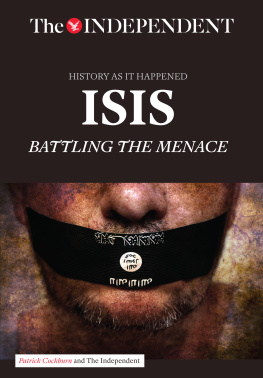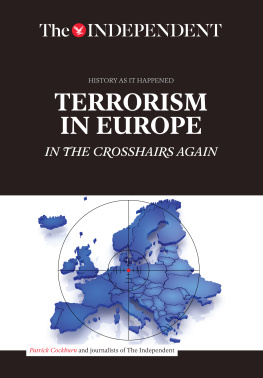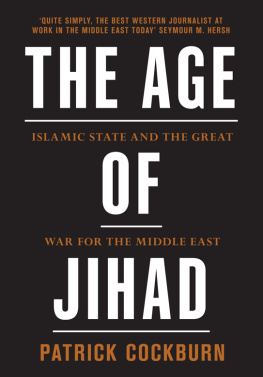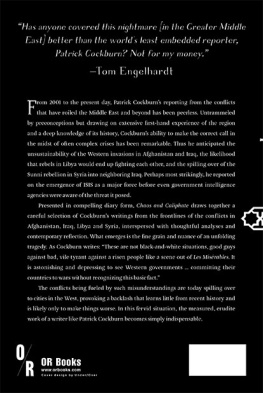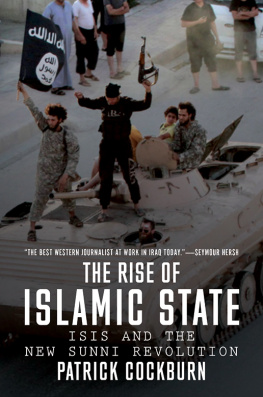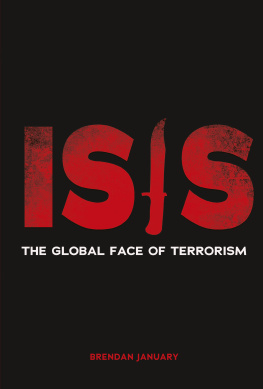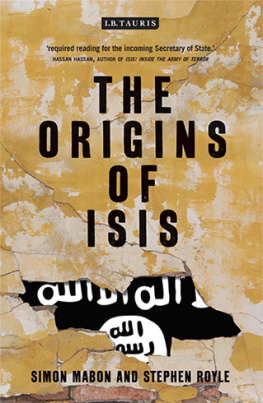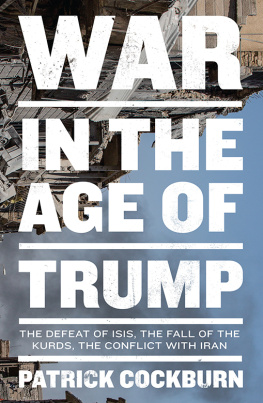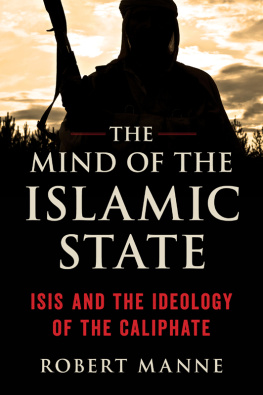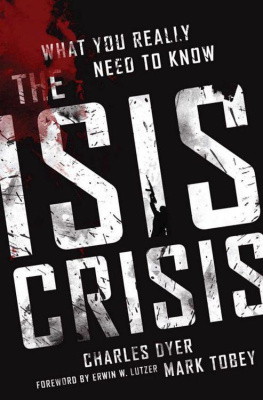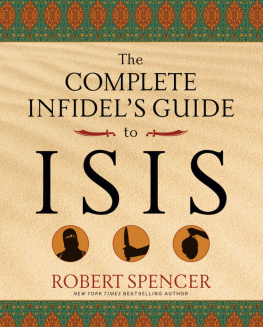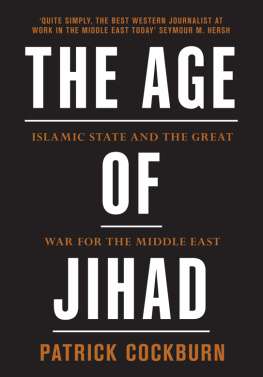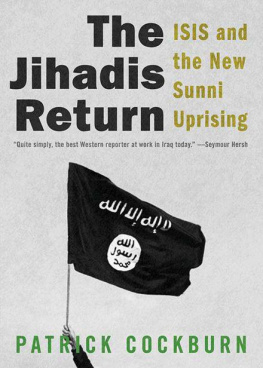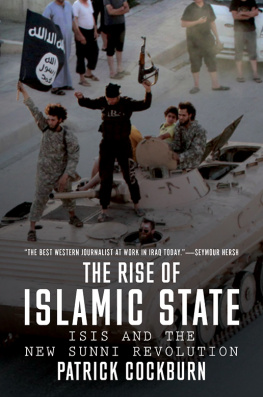Cockburn - ISIS: battling the menace
Here you can read online Cockburn - ISIS: battling the menace full text of the book (entire story) in english for free. Download pdf and epub, get meaning, cover and reviews about this ebook. City: Islamic countries;Middle East, year: 2016, publisher: Mango Media in collaboration with The Independent, genre: Politics. Description of the work, (preface) as well as reviews are available. Best literature library LitArk.com created for fans of good reading and offers a wide selection of genres:
Romance novel
Science fiction
Adventure
Detective
Science
History
Home and family
Prose
Art
Politics
Computer
Non-fiction
Religion
Business
Children
Humor
Choose a favorite category and find really read worthwhile books. Enjoy immersion in the world of imagination, feel the emotions of the characters or learn something new for yourself, make an fascinating discovery.
ISIS: battling the menace: summary, description and annotation
We offer to read an annotation, description, summary or preface (depends on what the author of the book "ISIS: battling the menace" wrote himself). If you haven't found the necessary information about the book — write in the comments, we will try to find it.
ISIS: battling the menace — read online for free the complete book (whole text) full work
Below is the text of the book, divided by pages. System saving the place of the last page read, allows you to conveniently read the book "ISIS: battling the menace" online for free, without having to search again every time where you left off. Put a bookmark, and you can go to the page where you finished reading at any time.
Font size:
Interval:
Bookmark:
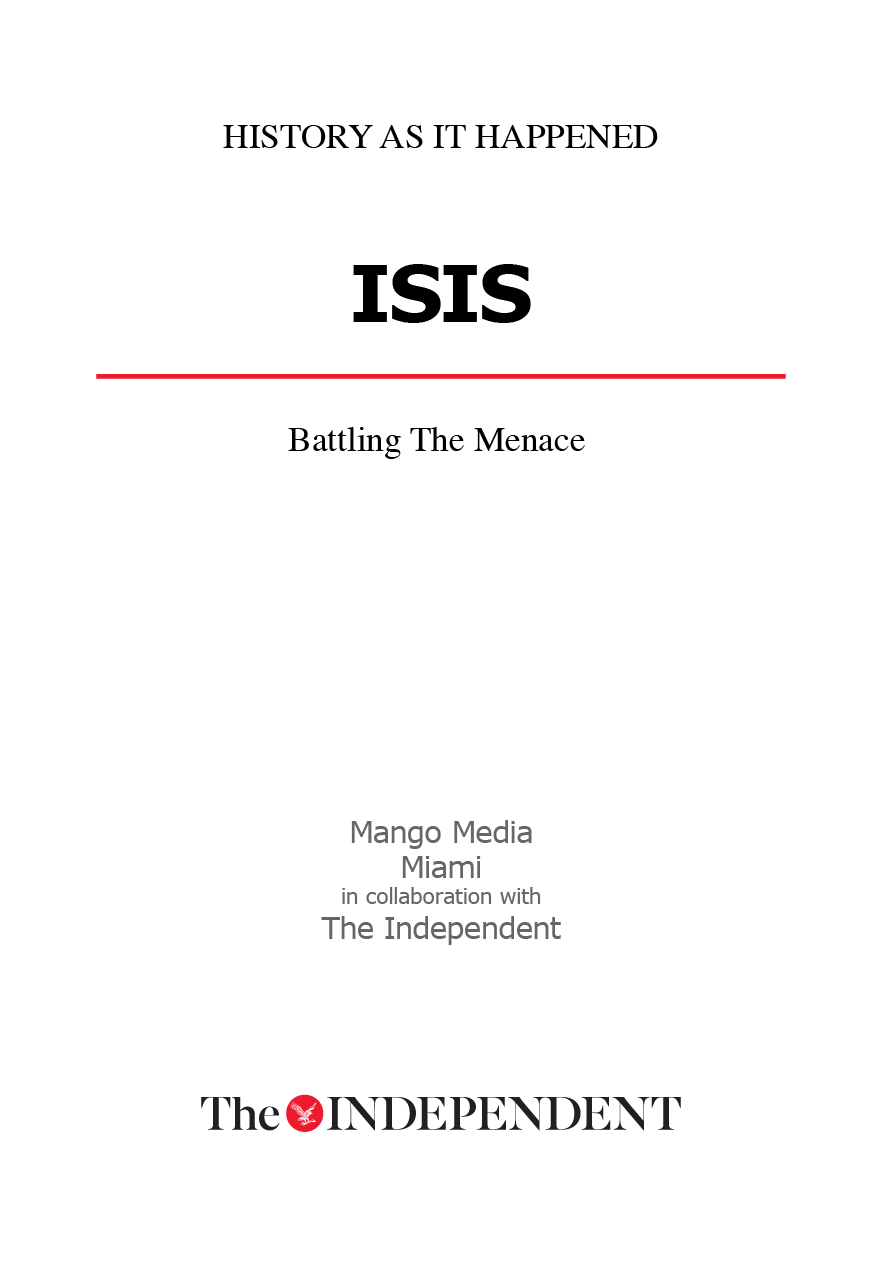
Independent Print Limited
Copyright 2016 The Independent. All rights reserved.
This material may not be published, broadcast, rewritten or redistributed.
Published by Mango Media, Inc.
www.mango.bz
No part of this publication may be reproduced, distributed or transmitted in any form or by any means, without prior written permission.
This is a work of non-fiction adapted from articles and content by journalists of The Independent and published with permission.
Front Cover Image: alexskopje/Shutterstock.com
Back Cover Image: Rena Schild /Shutterstock.com
ISISBattling the Menace
ISBN: 978-1-63353-434-6

" ISIS can only be crushed in Iraq if they are also defeated in Syria ."
Patrick Cockburn, January 2016, The Independent
Table of Contents
FOREWORD
On 29 June 2014, the first day of Ramadan, the leaders of a Sunni army operating on the Syria-Iraq border proclaimed an 'Islamic State' under the rule of Abu Bakr al-Baghdadi, its new 'caliph'. For many, this was the first we had heard of the Islamic State of Iraq and al-Sham (Isis), or the Islamic State of Iraq and the Levant (Isil); but its forces, fanaticism and cruelty were to become all too familiar.
Sunday, 22 December 2013
ABU BAKR AL BAGHDADI
Who was the most successful leader in the Middle East in 2013? It is a hoary tradition of newspapers and magazines to produce end-of-year league tables listing the successful and the unsuccessful.
The results are often anodyne or quirky, but in the Middle East over the past 12 months such an approach has the advantage of cutting through the complexities of half a dozen distinct but interrelated crises by focusing on winners and losers.
In this year of turmoil, a shortlist is not so difficult to draw up, because so many leaders were in more trouble at the end of the year than they were at the beginning. The Turkish Prime Minister, Recep Tayyip Erdogan, for instance, would have been an easy winner in previous years for his undoubted success in ending the era of military coups and for presiding over unprecedented economic prosperity.
But in the past few days he has watched the sons of his most powerful ministers being arrested amid accusations of corruption while his maladroit intervention in the Syrian civil war blasted Turkey's hopes of becoming a regional power. Hubris brought on by three election victories probably explains why Mr Erdogan has lost his touch.
Another contender to top the list of successful leaders in the region in previous years would have been Israeli Prime Minister Benjamin Netanyahu. Always an under-rated politician internationally, he has been highly successful in manipulating the threat of war to get what he wants while being careful not to fire a shot. His threats to bomb Iranian nuclear facilities, always discounted as a well-sustained bluff by this column, led to severe sanctions against Iran and diverted attention from the Palestinians. For all Mr Netanyahu's denunciations of the interim deal between the US and its allies and Iran, he has not lost much, even if his influence on American policy is diminished. The most astute and experienced politician in the Middle East is probably the Kurdish leader Massoud Barzani, President of the Kurdistan Regional Government (KRG) and head of the Kurdistan Democratic Party, who has pursued Kurdish self-determination, so far within the context of Iraq, through victory and defeat. His has been an extraordinary career, with abrupt reversals, such as total defeat in 1990 being followed by sudden triumph when the Kurds took advantage of Saddam Hussein's debacle in Kuwait to seize back their heartlands in Iraq. The KRG is now one of the few places on earth enjoying a genuine economic boom, thanks to the discovery of oil and gas. Mr Barzani has balanced between the US, Iran, Turkey and the Iraqi central government in Baghdad without becoming the pawn or the victim of any of them.
Given the hostility between Turks and Kurds, one of the most remarkable sights of the year was Mr Barzani in full Kurdish uniform standing on a platform with Mr Erdogan in Dyabakir, effectively the Kurdish capital in Turkey, in November and speaking of Kurdish-Turkish brotherhood.
Kurdish nationalism is close to winning a degree of autonomy not far from self-determination in Iraq, Turkey and Syria. Unlike other successful leaders, Mr Barzani has a certain modesty and realism that keeps him from overplaying his hand when times are good.
Mr Barzani has had a particularly good year but his outstanding abilities are scarcely news. Less calculable are the achievements of Hassan Rouhani, who won the Iranian presidential election in June on a platform of greater civil rights, an improved economy and a rapprochement with the West. Almost anybody would look good compared with his predecessor, President Mahmoud Ahmadinejad, but Mr Rouhani's visit to the US was successful and was followed by the interim deal with the P5+1 (the permanent members of the UN Security Council plus Germany) on the Iranian nuclear programme signed in Geneva on 24 November.
But the deal leaves Mr Rouhani vulnerable because Iran froze and, to some extent, rolled back its nuclear programme in return for very minor concessions on sanctions - perhaps worth as little as $6 billion - which will make no economic difference to Iran. It may be that the US is now talking so tough to placate Congress and Israel, but if it turns out that Iranian negotiators reached a one-sided agreement that will bring few political or economic benefits to Iran, then the future prospects for Mr Rouhani do not look so bright. It may also be that his domestic opponents - in the Islamic Revolutionary Guard Corps (IRGC) and elsewhere - are holding back because they are convinced that the meagerness of his achievements will become apparent. President Obama publicly put the chances for a final agreement at 50:50. The US may believe that, if sanctions have brought Iran so far, further pressure will eliminate forever its capacity to produce a nuclear device. At this stage the prospects for long-term agreement do not look so good.
But there is one leader in the Middle East who can look back on the achievements of the past year with unmitigated satisfaction. He leads an organisation that was supposedly on its way to extinction or irrelevance three years ago, but today it is an ever more powerful force in the vast triangle of territory in Iraq and Syria between Mosul, Baghdad and the Mediterranean coast.
Unfortunately, the most successful leader in the Middle East this year is surely Abu Bakr al-Baghdadi, also known as Abu D'ua, the leader of al-Qa'ida in Iraq (AQI), which changed its name this year to Isis and claims to be the sole al-Qaida affiliate in Syria as well as Iraq. The US says al-Baghdadi is based in Syria and is offering $10 million to anyone who can kill or capture him.
One of the most extraordinary developments in the Middle East is that 12 years after 9/11 and six years after "the surge" in Iraq was supposed to have crushed AQI, it is back in business. It is taking over its old haunts in northern and central Iraq and is launching attacks on Shia civilians that have killed 9,000 people so far this year. Yesterday it killed a general commanding a division in an ambush in Anbar province.
Al-Qa'ida has benefited from the Iraqi government failing to conciliate the Sunni Arab protest movement that began a year ago, with the result that it is mutating into armed resistance. In July, a carefully planned Isis attack on Abu Ghraib prison in Baghdad freed 500 prisoners, many of them al-Qa'ida veterans.
Next pageFont size:
Interval:
Bookmark:
Similar books «ISIS: battling the menace»
Look at similar books to ISIS: battling the menace. We have selected literature similar in name and meaning in the hope of providing readers with more options to find new, interesting, not yet read works.
Discussion, reviews of the book ISIS: battling the menace and just readers' own opinions. Leave your comments, write what you think about the work, its meaning or the main characters. Specify what exactly you liked and what you didn't like, and why you think so.

